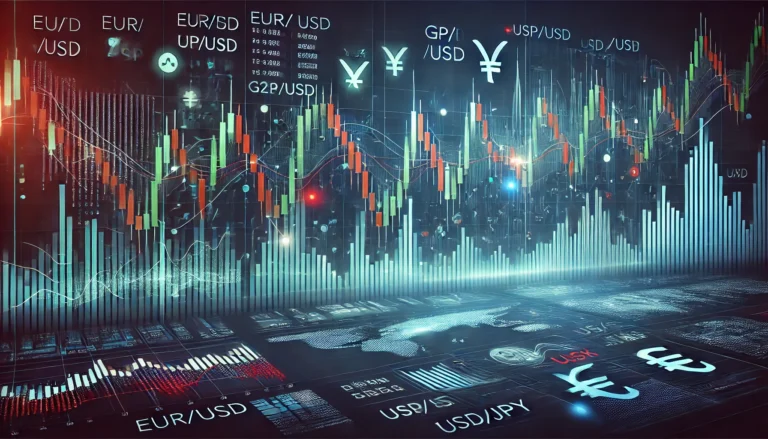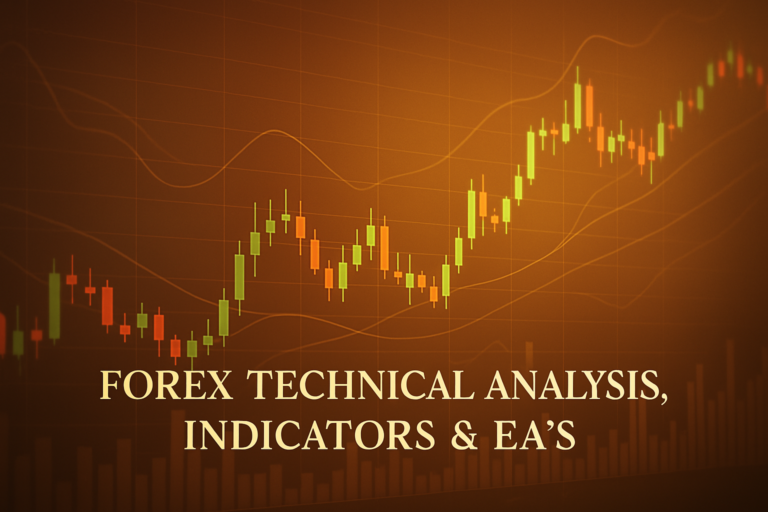
The foreign exchange market vs stock market presents unique opportunities and challenges that every trader should understand for success.
The world of finance can be both exciting and confusing, especially when comparing the foreign exchange market vs stock market. Each market has its own unique characteristics and attracts different types of traders. Understanding these differences is crucial for anyone interested in Forex trading because they can impact your trading strategy and decisions.
Many traders, both beginners and professionals, often struggle to understand the nuances between these two markets. This confusion can lead to poor trading decisions and missed opportunities. That’s why it’s essential to grasp the fundamentals and apply them effectively for your trading benefit. The more you know, the better your chances of success!
If you’re interested in the AUDUSD forecast April 18, 2025, be sure to keep an eye on market trends as they evolve!
Understanding the Foreign Exchange Market vs Stock Market
At its core, the foreign exchange market vs stock market involves trading currencies versus trading company shares. In the forex market, you’re buying one currency while selling another. For instance, when you trade the EUR/USD pair, you are buying euros and selling US dollars simultaneously. Meanwhile, in the stock market, you buy shares of a company, which represents ownership in that company.
Why does this matter? Because the trading environments are different. The foreign exchange market operates 24 hours a day, five days a week, while the stock market has set trading hours. This difference can lead to various challenges. For example, a sudden economic news report can greatly affect currency prices overnight, leaving forex traders scrambling. In contrast, stock traders may not be as affected during off-hours. Let’s say an unexpected event causes the value of the euro to drop sharply against the dollar; savvy forex traders will react quickly, while stock traders will have to wait until the market opens to respond.
Pro’s and Con’s for Foreign Exchange Market vs Stock Market
When considering the foreign exchange market vs stock market, it’s essential to weigh the pros and cons of each. Here’s a closer look:
- Accessibility: Forex trading is accessible to anyone with an internet connection. You can start with a lower capital compared to stocks.
- Leverage: Forex allows higher leverage, meaning you can control larger sums than your initial investment. However, this also increases risk.
- Market Hours: The forex market operates 24/5, allowing for more flexibility in trading. In contrast, stock markets have limited hours.
- Market Volatility: The forex market can be more volatile, making it possible for experienced traders to take advantage of rapid price changes.
- Research and Analysis: Stock trading often requires more analysis of individual companies, while forex relies heavily on economic indicators.
For beginners, it’s important to remember that each market requires a different approach. Here are some best practices to mitigate risks:
- Educate Yourself: Learn about both markets before diving in.
- Start Small: Begin with small trades to understand market behavior.
- Use Stop Losses: Protect your investments by setting stop-loss orders.
For advanced traders, keep in mind that the foreign exchange market vs stock market has its own intricacies. Stay informed about global news and trends, as they can significantly affect currency prices.
If you’re curious about what is US30 in Forex, you can find a great guide here.
Frequently Asked Questions
1. What is the main difference between the foreign exchange market and stock market?
The primary difference lies in what is being traded. In the foreign exchange market, you trade currencies, while in the stock market, you trade shares of companies. This leads to different trading strategies, market hours, and volatility levels.
2. Which market is more volatile?
Typically, the foreign exchange market is more volatile due to its dependence on a wide range of economic factors. Major events can change currency values rapidly, while stocks may not react as quickly.
3. Can I trade both markets simultaneously?
Yes, many traders choose to engage in both markets, leveraging the different opportunities each provides. However, it requires a good understanding of both environments to manage risks effectively.
4. What are the risks involved in Forex trading?
Forex trading can be risky due to high leverage, market volatility, and the potential for rapid losses. It’s crucial to have a solid trading plan and risk management strategy in place.
5. Do I need to be an expert to start trading?
No, you don’t need to be an expert to start trading. However, education and practice are key. Start with demo accounts to build your skills before trading real money.
6. How can I improve my trading strategy?
Staying informed about market trends, continuously learning about economic factors, and practicing with different strategies can help improve your trading. Joining trader communities and forums can also provide valuable insights.
7. What tools can help me in trading?
Using trading platforms with analytical tools, economic calendars, and market news feeds can significantly enhance your trading experience.
Conclusion
In summary, understanding the foreign exchange market vs stock market is crucial for traders at all levels. The key takeaways are to know the differences, leverage the strengths of each market, and continuously educate yourself. With the right approach, you can manage risks and improve your trading strategies.
Always remember that knowledge is your best tool. Keep learning, stay curious, and don’t hesitate to ask questions. Your trading journey is just beginning!
Recommended Next Steps
To further your understanding of the foreign exchange market vs stock market, consider these steps:
- Read books and articles on Forex trading.
- Join online forums and communities.
- Practice with a demo trading account.
- Follow economic news to stay updated.
- Analyze successful traders’ strategies.
Want to build a solid foundation in forex? Here’s a recommended read International Monetary Fund, Trading Economics
Expand Your Knowledge
- 📌 Forex Trading Learning Road Map
- 📌 Forex Trading Course with no Fees
- 📌 Forex Trading Issues, Problems, and Solutions
- 📌 Forex Daily Forecast & Live Updates
- 📌 Forex Fundamental & News Analysis: Tomorrow’s Market Movers & Trade Opportunities
- 📌 Forex Education Hub: Learn & Profit
- 📌 Forex Technical Analysis, Indicators & EA’s
Start Trading Today
Ready to take your forex trading to the next level? Open an account with Exness, one of the most trusted platforms in the industry. 👉 Sign Up Now and trade with confidence!
My recommended broker stands out with ultra-low spreads for beginners, instant withdrawals, and zero spread accounts for pro traders.
Trusted since 2008, lightning-fast execution, no hidden fees, and a secure, transparent trading environment—giving you the edge you need to succeed. 🚀
YouTube Video Library: Related Videos
Note: The video above is embedded from YouTube and is the property of its original creator. We do not own or take responsibility for the content or opinions expressed in the video.




